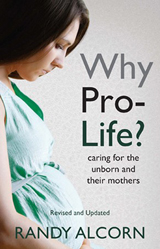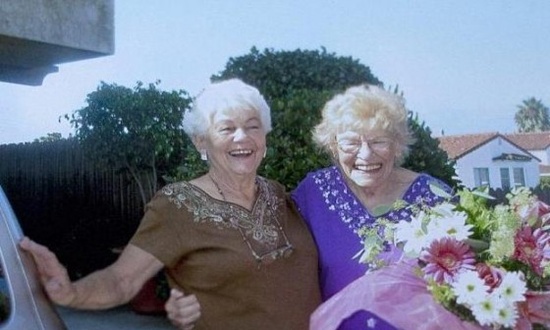This answer is excerpted directly from Randy's book Why ProLife?, Chapter 13.

Studies conducted by the pro-choice Guttmacher Institute indicate that two consenting and fertile adults have only a 3–5 percent chance of pregnancy from an act of intercourse. They also indicate there are factors involved in a rape that further reduce these chances for rape victims. [1] The Institute conducted a write-in survey of 1,160 women in 2004 and found 1.5 percent of abortions were reported as due to rape or incest. [2] Another of their studies cited one percent. [3] Other studies have shown that pregnancies due to rape are much rarer, as few as one in a thousand cases. [4]
What’s the Real Issue?
Pro-choice advocates divert attention from the vast majority of abortions by focusing on rape because of its well-deserved sympathy factor. Their frequent references to it leave the false impression that pregnancy due to rape is common, rather than rare.
Where does the misconception come from that many pregnancies are due to rape? Fearful young women sometimes attribute their pregnancies to rape to avoid possible condemnation. Norma McCorvey was the young woman called “Roe” in the Roe v. Wade case. She elicited sympathy in the court and media because she claimed to be a rape victim, but years later admitted she’d lied and hadn’t been raped. [5] (McCorvey has since become an outspoken pro-life advocate and has asked the Supreme Court to review and reverse Roe v. Wade. [6])
We have a dear friend who was raped and became pregnant. Because of her circumstances it wasn’t best for her to raise the child. She released the baby for adoption into a Christian family. Our friend periodically has contact with the family and her child. It hasn’t been easy and her pain has been great—yet her comfort is in knowing her child lives and is loved.
On a television program about abortion, I heard a man say of a child conceived by rape, “Anything of this nature has no rights because it’s the product of rape.” But how is the nature of this child different from that of any other child?
And why is it that pro-choice advocates are always saying the unborn child is really the mother’s, not the father’s, until she is raped—then suddenly the child is viewed as the father’s, not the mother’s?
The point is not how a child was conceived but that he was conceived. He is not a despicable “product of rape.” He is a unique and wonderful creation of God.
Having and holding an innocent child, whether the mother chooses to keep her or place her for adoption, can do much more good for a victimized woman than the knowledge that an innocent child died in a fruitless attempt to reduce the mother’s trauma.
Conceived by Incest
Incest is a horrible crime. Offenders should be punished, and decisive intervention should be taken to remove a girl from the presence of a relative who has sexually abused her. The abuser—not the girl or her child—is the offender. Intervention, protection, and ongoing personal help for the girl—not killing an innocent child—is the solution. (Despite popular beliefs, fetal deformity is rare in such cases. If the child has handicaps, however, he still deserves to live.) Why should Person A be killed because Person B raped or sexually abused Person A’s mother? If your father committed a crime, should you go to jail for it? If you found out today that your biological father had raped your mother, and you had been conceived as a result, would you feel you no longer had a right to live?
A woman who heard me speak about this subject told me afterward, sobbing, “My mother was raped as a thirteen-year-old. She gave birth to me, then gave me up for adoption. Every time I’ve heard people say abortion is okay in cases of rape, I’ve thought, ‘Then I guess I have no right to live.’ And if I had been aborted, my children wouldn’t be here either.”
Let’s punish abusers, not the victims. The woman isn’t spoiled goods—she’s not “goods” at all but a precious human being with value and dignity that even the vilest act cannot take from her. Likewise, the child isn’t a cancer to be removed but a living human being to be loved. If the child needs to be placed for an adoption, isn’t this a far better solution than taking her life?
And shouldn’t we stop telling people who were conceived by rape that they have no right to live?
Abortion Compounds Rape Trauma
Feminists for Life says, “Some women have reported suffering from the trauma of abortion long after the rape trauma has faded.” [7] It’s hard to imagine a worse therapy for a woman who’s been raped than the guilt and turmoil of having her child killed.
In their book Victims and Victors, David Reardon and his associates draw on the testimonies of 192 women who experienced pregnancy as the result of rape or incest and 55 children who were conceived through sexual assault. It turns out that when victims of violence speak for themselves, their opinion of abortion is nearly unanimous—and the exact opposite of what most would predict:
Nearly all the women who conceived due to rape or incest, then had abortions, said that they regretted it. Of those giving an opinion, over 90% said that they would discourage other victims of sexual violence from having an abortion. On the other hand, of the women who conceived due to rape or incest and carried to term, not one expressed regret about her choice. [8]
Ironically, the violence of rape and the violence of abortion have something in common. Both are done by a more powerful person at the expense of the less powerful.
Abortion doesn’t bring healing to a rape victim. Imposing capital punishment on the innocent child of a sex offender does nothing bad to the rapist and nothing good to the woman.
Creating a second victim never undoes the damage to the first.
[1] Jean Staker Garton, Who Broke the Baby? (Minneapolis, MN: Bethany House, 1979), 76.
[2] Lawrence B. Finer, et. Al., Guttmacher Institute, “Reasons U.S. women Have Abortions; Quantitative and Qualitative Perspectives,” Vol. 37, No 3, Sept 2005, http://www.guttmacher.org/pubs/journals/3711005.pdf.
[3] Jane Orient, MD, “The Truth of Forcible Rape, or Public Hysteria,” Association of American Physicians and Surgeons; http://www.wnd.com/2012/ 08/akin-not-far-off-base-in-rape-comment; also referenced, http://www.physiciansforlife.org/the-truth-about-forcible-rape-or-political-hysteria/.
[4] John Willke, Abortion Questions and Answers (Cincinnati, OH: Hayes Publishing, 1988), 146–50.
[5] Sue Reily, “Life Uneasy for Woman at Center of Abortion Ruling,” The Oregonian, May 9, 1989.
[6] Caroline Overington, “Jane Roe Wants to Make Legal History Again,” The Age, June 21, 2003, www.theage.com.au/articles/2003/06/20/ 1055828492398.html.
[7] Feminists for Life Debate Handbook (Kansas City, MO: Feminists for Life of America, n.d.), 14.
[8] Frederica Mathewes-Green, “Abortion Politics and the "Rape and Incest" Exception,” Citizen Magazine 2000, http://frederica.com/writings/abortion-politics-and-the-rape-and-incest-exception.html.
Browse more prolife articles and resources, as well as see Randy's books Pro-Choice or Pro-Life: Examining 15 Pro-Choice Claims, Why ProLife? and ProLife Answers to ProChoice Arguments.
Photo by Chad Madden on Unsplash




